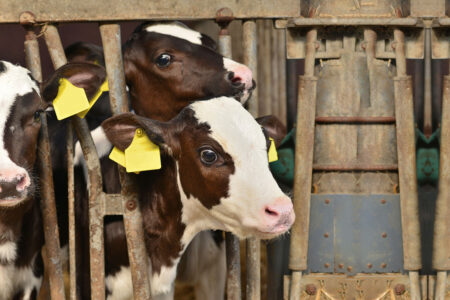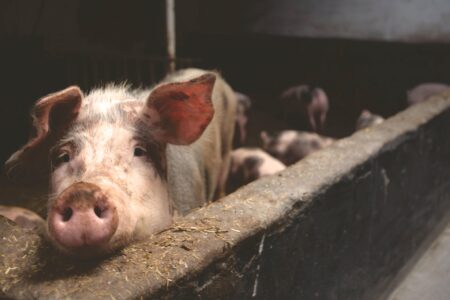Meet the meat you eat!
We love animals and don’t want to hurt them. At the same time, most of us still eat meat.. What explains this meat paradox? It’s all in the way we present meat and talk about it!
A few years ago I watched a documentary about eating meat. In the documentary the presenter is doing an internship at a slaughterhouse. As she states: “If I eat an animal, I should be brave enough to slaughter one myself, right?”. The documentary impressed me and it really made me think: would I eat meat if I had to kill animals myself? And, would I actually be able to kill an animal? But if the answer is no, why would I still eat meat? That doesn’t sound legitimate and is actually quite hypocritical..
The meat paradox
This contradiction is addressed in the literature as well. On the one hand, many people enjoy eating meat: total meat consumption continues to rise annually as the human population grows and welfare increases around the world. It was even shown that men who ate meat were rated as more sexy and masculine, and that women felt more positive about them than about vegetarian men. However, at the same time, few people approve of and enjoy harming or killing animals. This creates a so-called “meat paradox”: people are morally conflicted by the thought that they simultaneously like eating meat and dislike the harming of animals.
But why do people still continue to eat meat?
The resolution of this moral conflict, also called cognitive dissonance, can take one of the following two routes: one can either reject meat consumption and bring one’s behavior into alignment with one’s moral ideals by stopping eating meat. Or, one can find other ways to justify consuming meat. A particularly effective way to solve this cognitive dissonance is a very simple one: consumers can simply dissociate meat from animals. In other words, they ignore or suppress the fact that the meat they eat originates from once-living creatures. Although this dissociation of meat and animals is shown to be common in the Western world, it has not been tested empirically for a long time.
The presentation of meat matters
In one study, it was shown that the way we present, prepare and talk about meat influences the extent to which we eat it. For instance, people are less empathetic towards a slaughtered animal when they see processed meat compared to unprocessed meat. In another experiment, it was shown that the removal of the animal’s head from a pork roast was associated with a decrease in empathy and an increase in the willingness of people to eat the meat. The use of words was also shown to be influential: using the word “harvesting” instead of “killing” or “slaughtering” reduced empathy and was associated with increased eating of meat. Also, replacing “beef” and “pork” on a restaurant menu by “cow” and “pig” was associated with increased disgust and increased ordering of vegetarian dishes. It is interesting to note that I may have influenced your level of empathy towards animals earlier in this paragraph, by using the term “unprocessed meat” instead of “animal corpses after slaughter”😉.
Clearly, the meat practices in current supermarkets and restaurants facilitate the separation of the meat products from their animal origins, which bolsters the consumption of meat. If people are reminded of the animal-meat link, they feel more empathy towards the animal and are less willing to eat meat. As Paul McCartney once said: “If slaughterhouses had glass walls, everyone would be a vegetarian”. In addition, consider the tv-show Meat the family, in which people raise a pet and are then given the option: either you eat your pet or become a vegetarian. Here, people are confronted with the fact that every chicken or lamb they eat is similar to the chicken or lamb they raised as a pet. It is very difficult to eat the animal once you feel connected to it.
There is hope for the future!
In my opinion, dissociation is a psychological mechanism of closing your eyes to the actual truth. I think we should be more open and fair about the fact that meat does not grow on trees. It really is different from vegetables or fruit and should be regarded as such. But there is hope, as there may be a future in which we can enjoy meat without that gnawing feeling. This sounds like a utopia, but luckily this may be possible in the future with the use of cultured meat. Until then, there are plenty alternatives from the Vegetarian Butchers 😉.





